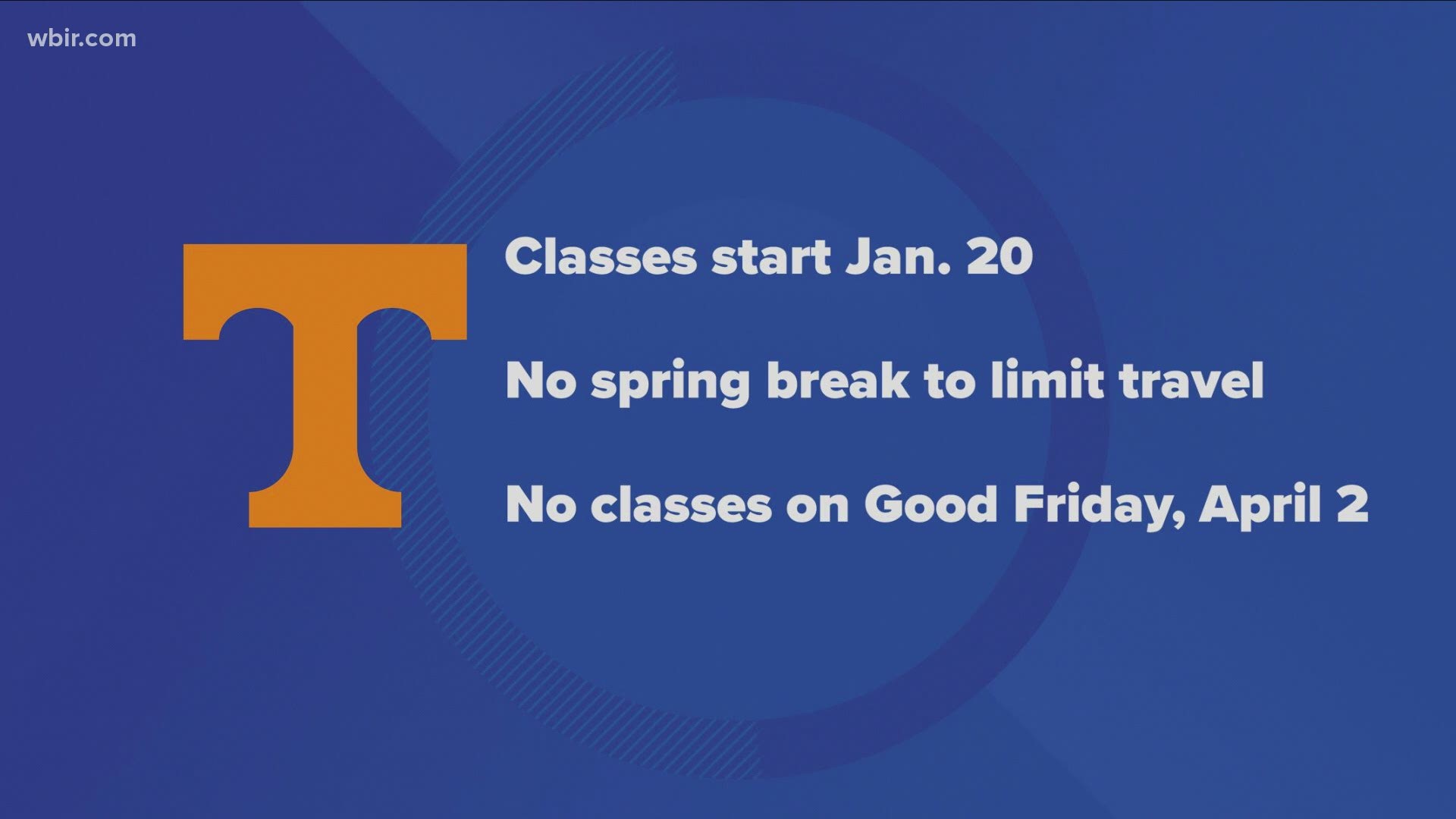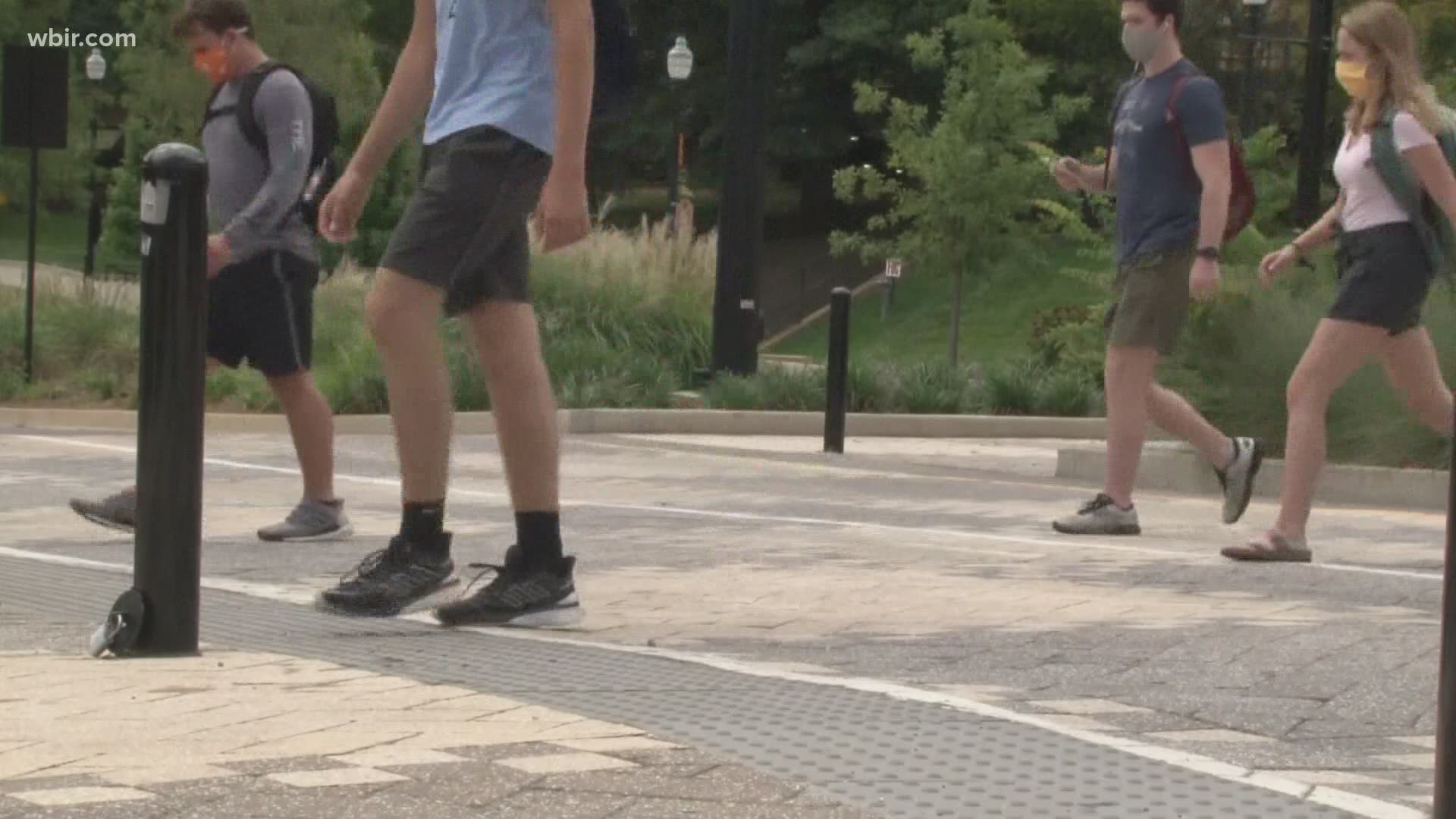KNOXVILLE, Tennessee — A downward COVID-19 case count reported this week in the University of Tennessee community could be seen as a good sign, but there are also concerns students aren't getting testing for the virus when they need to, the director of UT's Student Health Center said Friday.
"This is no time to let down our guard," Dr. Spencer Gregg said during UT Chancellor Donde Plowman's online briefing to the university community.
Statewide, health authorities have noted a similar reduction in people who are getting tested.
Students also need to be prompt and up front in reporting if they've been around someone who may have the virus, Gregg said. Contact tracing gives health workers a leg up on identifying and stopping infections.
Don't assume if you've got a headache or what appears to be a cold that it's merely that, Plowman said. You may think it's mild, but it's smarter to go get tested at the Student Health Center to be sure.
Plowman mentioned she knew of an acquaintance who had what he thought was an allergy flare up. It turned out to be more serious, she said.
When unsuspecting COVID carriers circulate in the community, they end up exposing many more people potentially to the virus, authorities said.
UT reported Friday that positive, active cases were at 412, including 398 for students and 14 for staff. The count has been going down this week, figures show.
Self-isolations and people in quarantine also have been trending down and now stand at 1,540, including 631 non-residential students and 802 students living on campus.
UT has stepped up other testing methods, including administering more targeted nasal swab testing in dorms and gathering pooled saliva samples among students. It's also testing wastewater coming from dorms and Greek housing to try to spot where the virus might be even if residents aren't experiencing symptoms.
Plowman said early results should be ready for discussion next week.
UT announced Thursday it had made changes to the spring calendar, starting classes at a later date -- Jan. 20 -- and eliminating Spring Break.
Provost John Zomchick said a calendar committee prepared the revised calendar with input from faculty and students among others. UT's more concentrated calendar is meant to help control and reduce the presence of the virus on campus.



